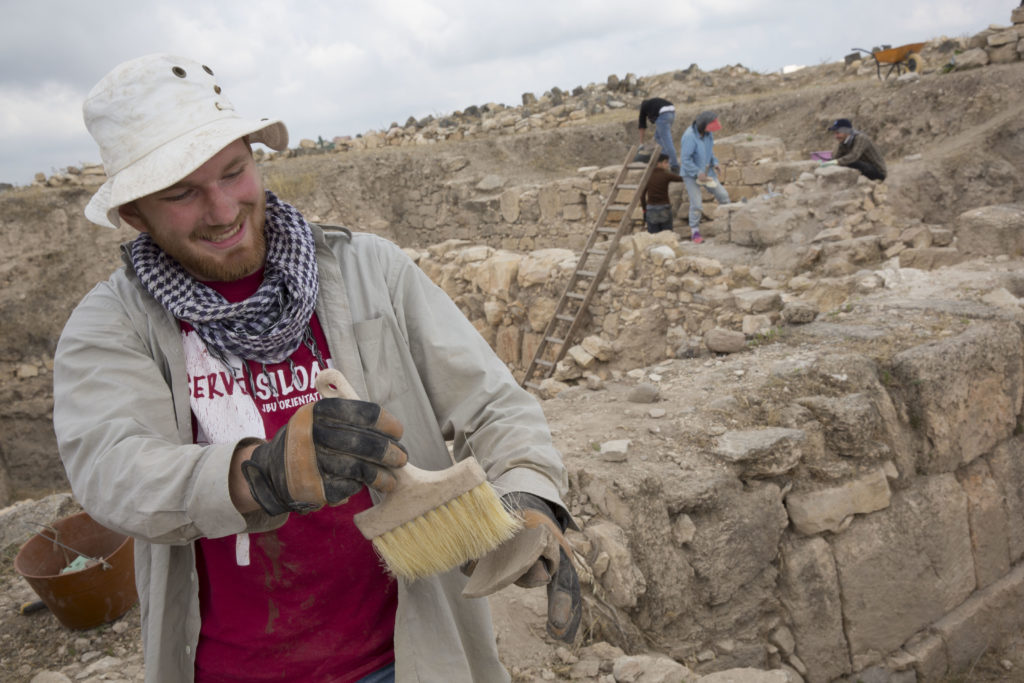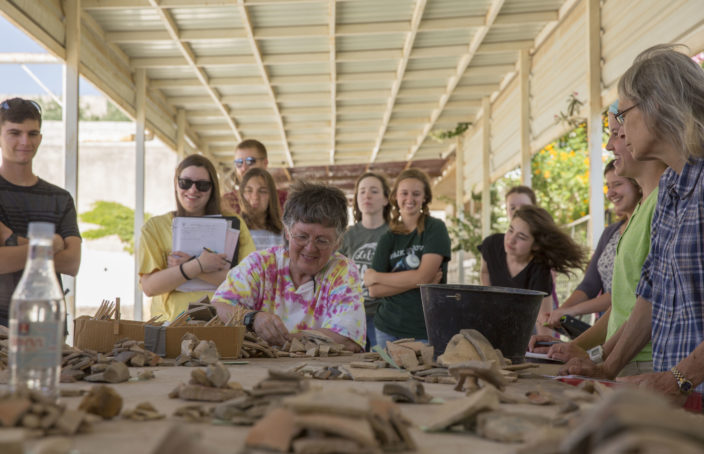Pottery Reading
During my freshman year of college, I took a Gateway class with Dr. Vila. On the first day, he shared a slideshow with photos of Abila. From that moment on, I knew I wanted to come to Jordan.
Since arriving two weeks ago, I’ve been excavating Square 22 of Area AA, uncovering ancient Roman walls. While excavating is exciting, the real reward is learning about the former inhabitants of Abila themselves through the artifacts they left behind. Each morning, my square partner Kari and I fill plastic buckets with pottery to take back to camp. Dr. Susan, our area supervisor, organizes the pottery into Roman, Byzantine and Hellenistic piles and counts each piece.
In the afternoon, my roommates and I wake each other up from our naps and groggily trek outside for pottery reading. We crowd under the carport by our makeshift table of plywood and oil barrels. As I take notes for my locus sheets, Dr. Susan explains what each piece of pottery means. She has several methods: licking, tapping, biting and smelling the pottery. Somehow, we manage to use most of our senses to figure out whether the pottery shards were part of a jar or a bowl or a goblet.

We go through a lot of pottery, and sometimes it gets thrown out. Much of it is rubbish, but when Dr. Susan or one of the other senior staff members says, “Square 22, save two,” I know we’ve found something good. Hearing Dr. Susan say “save” is the most satisfying part of the end of my day. It’s when history comes alive and the hard work of digging pays off.
During pottery reading, I sometimes imagine what ancient people might think about us reading their pottery. They might ask, “Why do you think that clay cup is so cool?” Then, I think about the future. In 10,000 years, archaeologists might dig through our ruins and say, “Oh, man. That Coke bottle is so amazing.” Or, they might say, “Oh. It’s just another Coke bottle. There are millions of those.”
What will my generation leave behind? What will our legacy be? Will it just be plastic McDonald’s cups or something better? Who knows?


No comments yet.
Add your comment